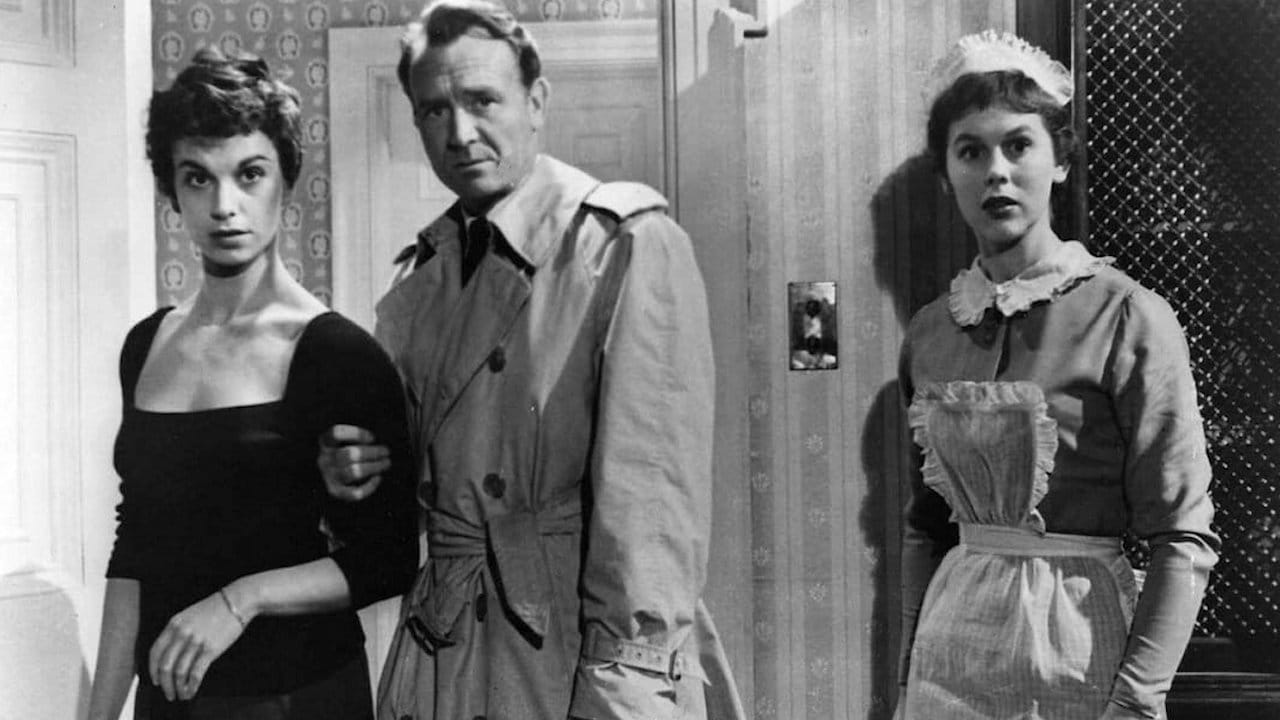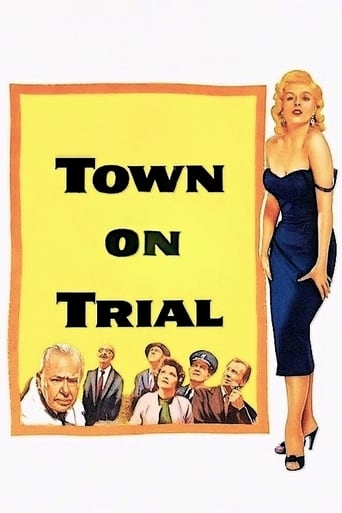

Scotland Yard's Detective Superintendent Hollarin (John Mills) arrives in the small town of Oakley Park to investigate the murder of a young girl called Molly Stevens whom was found strangled with a stocking in the grounds of an upmarket tennis club. Virtually the entire town falls under suspicion including her former boyfriend Peter Crowley (Alec McCowen) whom she deserted in favour of the club secretary Mark Roper (Derek Farr) who also had a reason for wanting her dead since he is a married man and he also got her pregnant. If that had come out he would have lost his job. The town's physician, Dr Fenner (Charles Coburn), is being blackmailed by Roper who knows that he left his practice in Canada when a wrong diagnosis resulted in one of his patients dying and his niece, Elizabeth (Barbara Bates), agreed to give Roper a false alibi in order to protect her uncle. In addition, the prominent Dixon family's daughter Fiona (Elizabeth Seal) was very friendly with Molly: they used to frequent a dubious nightclub which is facing an illegal gambling charge, get drunk and go joy riding with boys. This angered her father, Charles (Geoffrey Keen), who is a town councillor and is earmarked to become Oakley Park's Mayor and did not like the thought of his daughter keeping that kind of company. The police gradually close in on the murderer, but not before Fiona is killed while a dance is taking place at the club...As a straightforward murder mystery it is something of a let down because the identity of the killer is fairly obvious by about half way into the film's running time. Shame on the screenwriters Ken Hughes and Robert Westerby! Nevertheless, this mysteriously obscure little film is still well worth the watch thanks to strong realistic characterisations, vigorous direction by John Guillermin in what must have been one of his first 'A' features and excellent acting all round.John Mills offers a career best performance as the tough, dogged police superintendent who never plays by the rules and quite often finding himself in hot water with his superiors and the townsfolk who do not like his sometimes unorthodox methods and, above all, resent an outsider meddling in their affairs. Derek Farr, a familiar face of British cinema at that time, also stands out playing the dishonest and thoroughly dislikeable club secretary Mark Roper. In addition to his cheating on his wife and blackmailing the local doctor, he also lies about his war service in the RAF claiming to have been a distinguished fighter pilot yet Mills discovers he was only a lowly member of the ground crew who was dishonorably discharged for theft. There is an extremely effective scene where the Superintendent confronts him about this in quite an aggressive manner and we learn that the reason for his anger towards Roper was that his wife and child were killed during an air raid. And when he attempted to volunteer for the RAF himself, he was turned down and he resents anyone who lies about their war service like he did.The sense of small town distrust of outsiders is well conveyed and Guillermin opted to shoot the film in Weybridge, Surrey, England, which serves the plot very well. Basil Emmott, a lighting cameraman of prolific output whose work helped lift numerous 'B' pictures above the average, heightens the strong sense of place and the mysteriousness with his rich black and white camera-work. The suspense reaches fever pitch at the climax where Mills climbs up the steeple of a church to confront his killer who is threatening to commit suicide from throwing himself off the roof. The murder scenes are also very well done and are sufficient to send a chill down the spine even though the composer, Tristram Carey, opted to play a harpsichord over them predating the Margaret Rutherford Miss Marple films by a few years.
... View MoreI taped the film from C4 and watched it yesterday. I agree it was very disjointed. John Mills was cast completely against character and was not very convincing.Did anyone else notice a scene repeat? After Elizabeth Seal was murdered at the dance, John Mills interviewed Charles Coburn in a side room. He came out of the room to speak to Barbara Bates then instructed a Police Officer to take her home, then is shown coming out of the room again to see her before the next scene! What struck me most was the fact that the Police cars were invariably driven too fast. Charles Coburn was I thought the best actor on show. Nice to see Harry Fowler playing the band leader for a change rather than a spiv.
... View MoreI come out somewhere between these two last verdicts. The plot had more holes than a chunk of gruyere, motivations I'd agree were distinctly shaky, and chemistry between Mills and Barbara Bates as the girl he falls for was notably lacking. (Love scenes have never exactly been Johnny Mills's forte, have they?) But as so often with British films of this vintage, the portrayal of a particular era and social milieu is fascinating, and the supporting performances include some gems. I liked Derek Farr's increasingly sweaty reactions as the bogus ex-officer running the social club as his own little harem; initially loathsome, but gradually becoming a pitiable figure as his carefully-constructed social persona crumbles about his ears. And Elizabeth Seal turns in a tour de force as the respectable mayor's daughter going determinedly to the bad. Her spirited, bottom-wiggling solo dance at the club was utterly wonderful.
... View MoreI too watched the Channel 4 showing. Must disagree with the previous comment. I thought it was a very mediocre film, especially when you think the story was penned by Francis Durbridge. As for the plot, well please tell what were the motives for the murders? I will agree, an excellent film to watch, if you are looking out for those great 'B' film character actors. ( uncredited appearance of Hal Osmond, then only 38, looking thirty years older). The petrol forecourt scene, and chastisement of Superintendent John Mills by the bicycling village 'plod' were great little scenes. Who was the actor who played the 'bobby'?
... View More